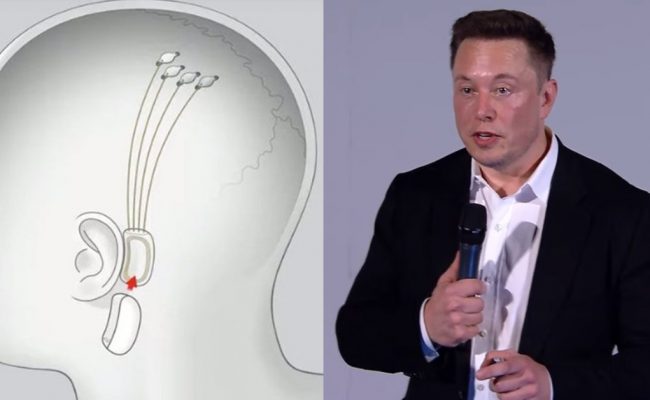Elon Musk announces wireless brain chip implant
- Posted on
- Comment

Tech billionaire Elon Musk says his Neuralink company has successfully implanted one of its wireless brain chips in a human for the first time.
Initial results detected promising neuron spikes or nerve impulses and the patient is recovering well, he said.
The company’s goal is to connect human brains to computers and it says it wants to help tackle complex neurological conditions.
A number of rival companies have already implanted similar devices.
BBC News has approached both Neuralink and the US’s medical regulator, the Food and Drug Administration (FDA), for comment.
Mr Musk’s company was given permission to test the chip on humans by the FDA in May, a critical milestone after earlier struggles to gain approval.
This gave the green light for the start of the six-year study during which a robot is being used to surgically place 64 flexible threads, thinner than a human hair, on to a part of the brain that controls “movement intention”, according to Neuralink.
The company says that these threads allow its experimental implant – powered by a battery that can be charged wirelessly – to record and transmit brain signals wirelessly to an app that decodes how the person intends to move.
Posting on X, the social media platform he owns which was formerly known as Twitter, Mr. Musk said Neuralink’s first product would be called Telepathy.
Telepathy, he said, would enable “control of your phone or computer, and through them almost any device, just by thinking”.
“Initial users will be those who have lost the use of their limbs,” he continued.
Referring to the late British Scientist who had motor neurone disease, he added: “Imagine if Stephen Hawking could communicate faster than a speed typist or auctioneer. That is the goal.”
While Mr Musk’s involvement raises the profile of Neuralink, he faces rivals, some of who have a track record dating back two decades. Utah-based Blackrock Neurotech implanted its first of many brain-computer interfaces in 2004.
Precision Neuroscience, formed by a Neuralink co-founder, also aims to help people with paralysis. And its implant resembles a very thin piece of tape that sits on the surface of the brain and can be implanted via a “cranial micro-slit”, which it says is a much simpler procedure.
Existing devices have also generated results. In two separate recent US scientific studies, implants were used to monitor brain activity when a person tried to speak, which could then be decoded to help them communicate.
-BBC










 (Selorm) |
(Selorm) |  (Nana Kwesi)
(Nana Kwesi)